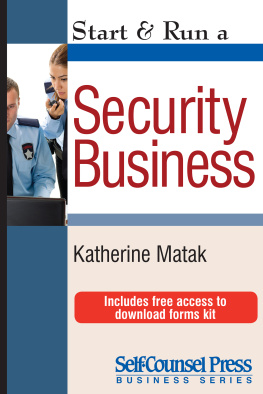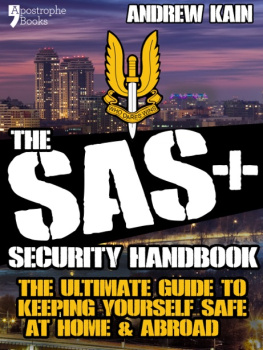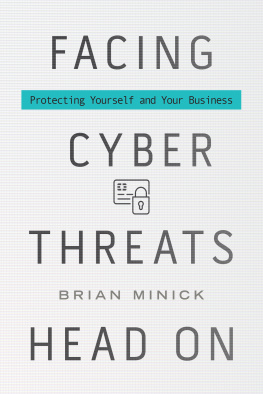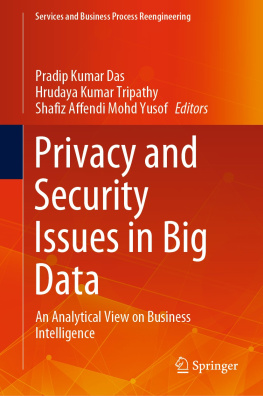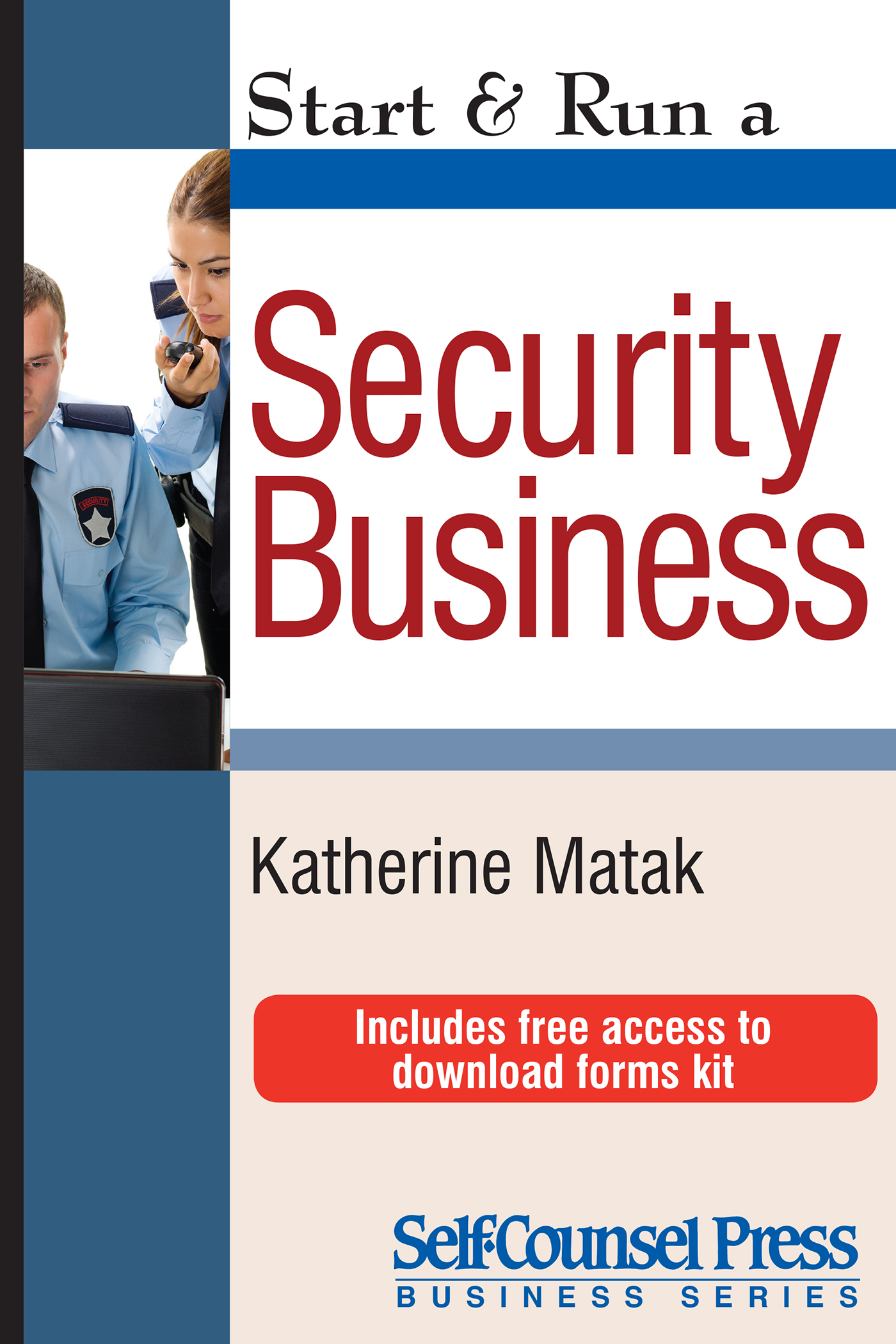Introduction: Who Am I and Why Should You Listen to Me?
I got my first job in the security industry accidentally. I had just left my job working as a dispatcher for the North Vancouver RCMP and had finished my criminology undergraduate degree. I was undecided about where to go career-wise and the owner of a security company I had met offered me a job as general manager for his company.
I definitely had no idea what I was walking into nor did I have any knowledge about the private security industry. What I did bring to the table were superior organizational skills, a great personality, and no fear of the unknown. I used all these assets during my time with this security firm.
Thus, I began my tenure at a local security firm. But there was no future there; it was a small company owned by two men who shared partnership duties but were in complete discord about how to operate the company. It was a chaotic, disorganized, sometimes concerning work environment. The company was unionized and I spent a lot of time working with the union to clean up management decisions that conflicted with union regulations.
During this time frame the business agents at the union recommended me as a manager to a national company looking to set up an office in British Columbia. At that time they were the largest Canadian-owned private security firm, handling major security contracts that my previous employer was unable to take on. It was the next level of private security work and I had the privilege of setting up security at the Quintette Coal site at Tumbler Ridge, the Point Roberts terminal, and various other contract sites. As manager I built their business from zero employees to around 200 within a year and a half. This national company entered the BC marketplace.
During these two experiences I noticed one common problem that was costly to both organizations: A lack of training for the security staff in a formalized, standardized way. One company had a philosophy that training was critical to success so we were able to work with in-house training programs that covered main points, but training was not considered important within the industry in general nor by the licensing body.
Once I had accomplished my goal of putting that company on the map I decided to form my own business, Security West Ltd. As such I became the first female private security company owner in British Columbia. I was fortunate enough that I had built such a rapport with many clients that when I left they chose to turn over their expiring contracts to my new company. So we started with a good base, and good supervisory staff.
Nevertheless the industry was competitive, and we faced a lot of union negotiations and one major client bankruptcy. At that time my common-law partner and I sat in my office at night, realizing we had just lost all our funds due to that clients inability to pay, and we had to make a decision. I remember clearly sitting in our office on Homer Street saying, Well, either we walk away or we push on against all odds and maybe someday laugh about this.
We did push on but I cannot honestly say we ever laughed about it. In order to survive we had to immediately review our operations and our critical cash shortage and find a solution.
That solution was to unify our staff, with whom we were close anyway, and work hand in hand on a regular basis. We became a team and worked together to make a profit.
We also had to change our invoicing system to a pre-delivery system. In other words, clients would be billed in advance of services so that the invoice was paid before the month was over. Everyone said our large government contracts would not agree to this, but they were wrong. Everyone cooperated and our little company survived and continued to do so until we sold to a national firm.
I was soon asked to sit on the local board of the Canadian Society for Industrial Security and to take on the part-time role of security programs coordinator at the Justice Institute of British Columbia. This was a joint program between Canadian Security Intelligence Service (CSIS) and the Continuing Education Department. I was contracted to research, develop, and write the foundation of the security guard training program; this course was the foundation of what is now a mandatory security guard training program in British Columbia. It was a wonderful opportunity to be one of the first security trainers in the province. I was fortunate to be able to travel and train staff at most of the large mine and mill sites within the province.
In addition to this, I wrote the security supervisors course, and courses for retail security, hotel security, and investigators. I was contracted to write the radio dispatch course, the alarm course, and a locksmith course for the Government of Canada Entry Program. I wrote and developed courses for the Ministry of the Attorney General. I wrote and taught courses and seminars during Expo 86 on residential security issues faced by new bed and breakfast owners.
My company ended up specializing in mall and hotel security, with a secondary priority being securing downtown buildings that required access control. We operated a cost-effective mobile patrol that was allocated to supervisors and thus we were able to maintain supervisory control of our sites at night.
As a security company owner, I have set up security for the smallest client to special events to large contracts requiring special considerations. This industry has taken me across the country and to every type of possible corporate and architectural structure. It has been challenging and exciting and rewarding.
When I said I wanted to run a security company, I was told it wouldnt work because I was a woman.
When I started my business, I was told by many it would never succeed.
When my largest client went bankrupt, I was told we needed to close.
When I went to meet with the association of companies that were the bargaining representatives for union negotiations, I overheard the men in the room saying that I had kept a certain contract because of my feminine wiles, not the incredible strategy we put in place to keep the job. (A sad statement on the thinking of those men.)
The purpose of this book is to provide you with the tools to make an entry into the security industry in a successful manner while avoiding unnecessary financial losses, but the moral of my story is that you should not listen to naysayers; listen to yourself, trust your inner voice, and trust the ability you have to succeed. There is no such thing as I cant.
Chapter 1
Why Start a Business in the Security Industry?
Do you like challenge? Are you interested in working in a field that is constantly evolving requiring the same of you; an industry that will expose you to such a variation of business that few other industries do; an exciting, fast-paced environment? Security is all of these things and more. No day brings the same problems or resolutions.
Many people enter the security industry directly from a similar field, such as the military or policing. Many see this as a lateral-entry environment; one that requires little new training on their parts; one where they feel a relatively secure sense of belonging. Since it can seem restrictive in relation to licensing anyone from outside policing or the military, people from these backgrounds are more likely to enter it.

